Boston Massachusetts Guide
Boston is the "capital" of New England, with history, excellent museums, musical performances, beautiful parks, great restaurants (lobster dinners!), fine hotels and plenty of shopping.
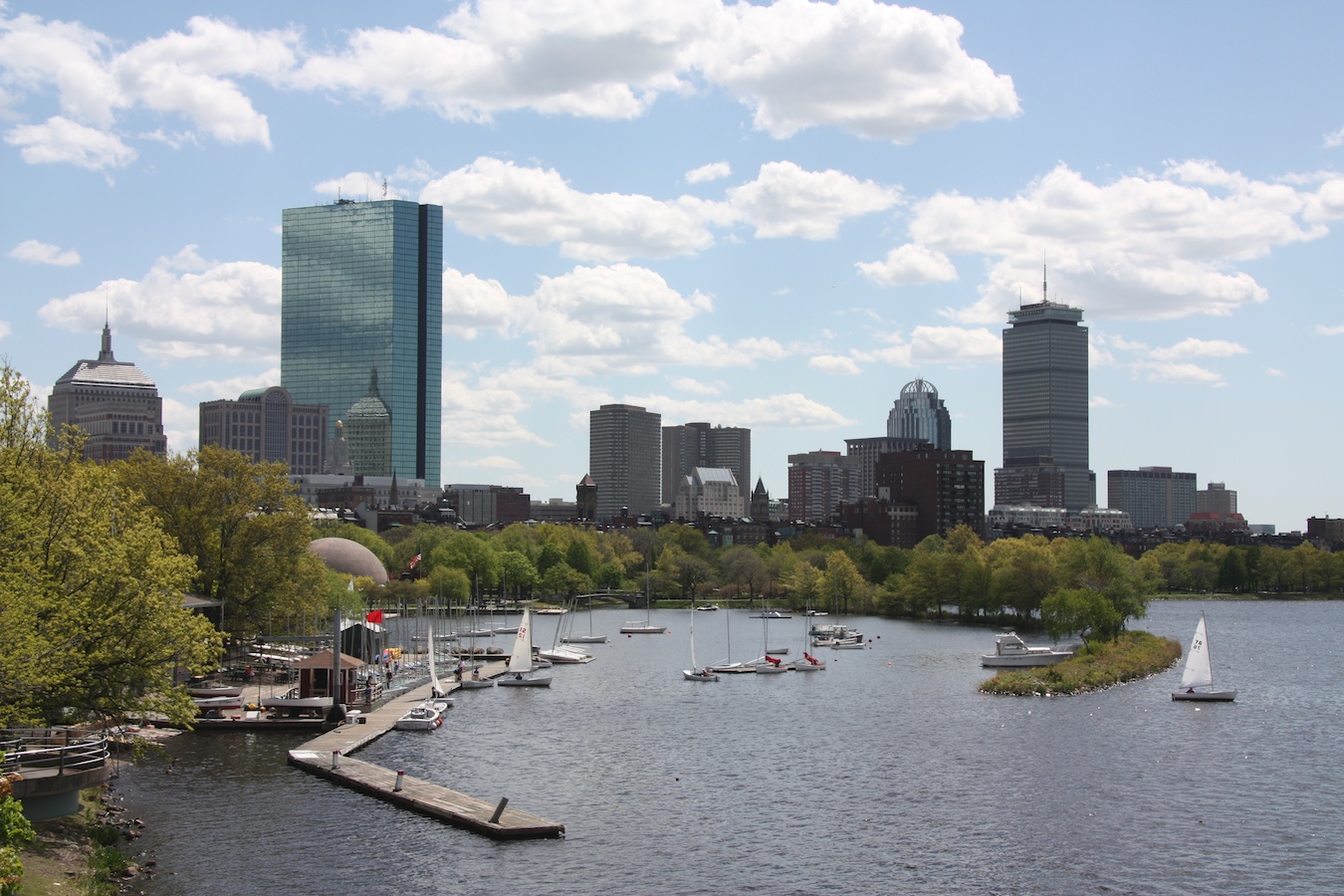
Charles River Esplanade with Back Bay behind.
Introducing Boston
Called "the Athens of America" during the 19th century, Boston is the capital of the Commonwealth (state) of Massachusetts and a major university area, with Berklee, Boston University, Brandeis, Harvard, Massachusetts Institute of Technology, Northeastern, Tufts, Wellesley, and dozens of smaller institutions. Tens of thousands of college students in Boston, Cambridge and neighboring cities keep Boston's spirit young.
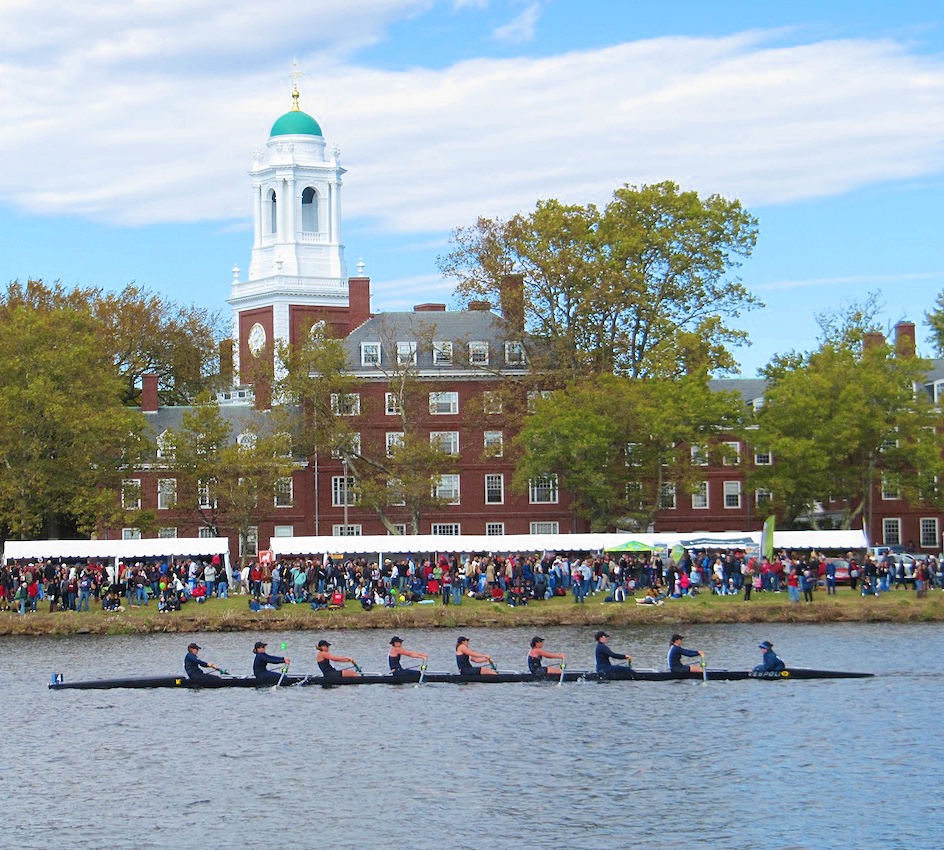
Rowers on the Charles River at Harvard University, Cambridge MA
Emphasis on learning also gives Boston world-class fine art museums such as the Museum of Fine Arts, Gardner Museum, and Institute of Contemporary Art, as well as other learning centers such as the Museum of Science, and the John F Kennedy Presidential Library & Museum, not to mention the great museums in Cambridge.
It's also one of the world's greatest high-tech hubs for computers, software, pharmaceuticals, architecture, aerospace, data processing, information services, science, medical research and technology.
It's home to the Boston Celtics (basketball), the Boston Bruins (ice hockey), the Boston Red Sox (baseball), the New England Patriots (football), the New England Revolution (soccer) as well as the Boston Symphony Orchestra and Boston Pops. And yet Boston is one of the most livable and manageable cities in the world, with the big-city economic and cultural resources, but small-city spirit and pace of life.
Greater Boston
Although Greater Boston today is home for over half of the seven million people of Massachusetts, the City of Boston itself is a fairly small area with a population of about 675,000. But if one adds in the populations of the neighboring cities such as Brookline, Cambridge, Somerville and more, the total comes to five million.
Boston's Freedom Trail
First-time visitors should follow Boston's Freedom Trail to find colonial and Revolutionary War-era sights including Boston Common, Beacon Hill, Faneuil Hall, Bunker Hill, Old North Church, Paul Revere's house, USS Constitution ("Old Ironsides") and more.
The Freedom Trail starts on Boston Common, the people's park in the city center.
Boston National Historical Park
Much of Boston's historic downtown area is now part of the Boston National Historical Park. Some of the islands in Boston Harbor are part of the Boston Harbor Islands National Recreation Area.
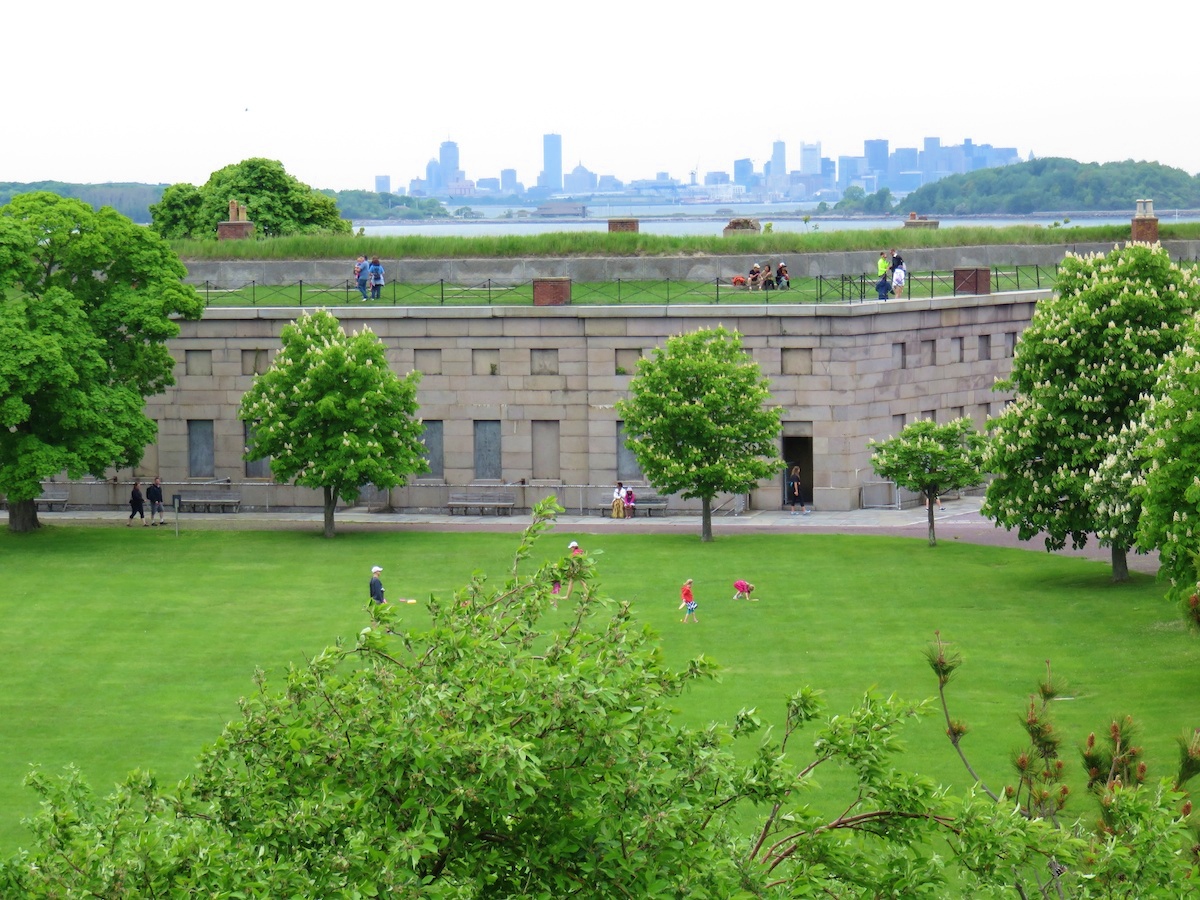
Fort Warren (1860), the Civil War-era fortress on Georges Island in Boston Harbor.
The National Parks Service maintains this website and Visitor Centers in historic Faneuil Hall and the Charlestown Navy Yard. Free guided tours of historic sites are available in the spring and summer. You'll see park rangers here and there at historic spots, ready to help with directions or information. More...
Finding Your Way in Boston
Finding your way around Boston and neighboring Cambridge is not particularly easy, what with rivers, bays, hills and centuries-old colonial street patterns, so here's how to do it.
Where to Stay
Here are Boston's best hotels by area so you can choose the one that will put you within walking distance of what you want to see and do. More...
Boston Transportation
Public transportation (subway, bus, Commuter Rail, trains, airplanes and ferryboats) can help as well. More...
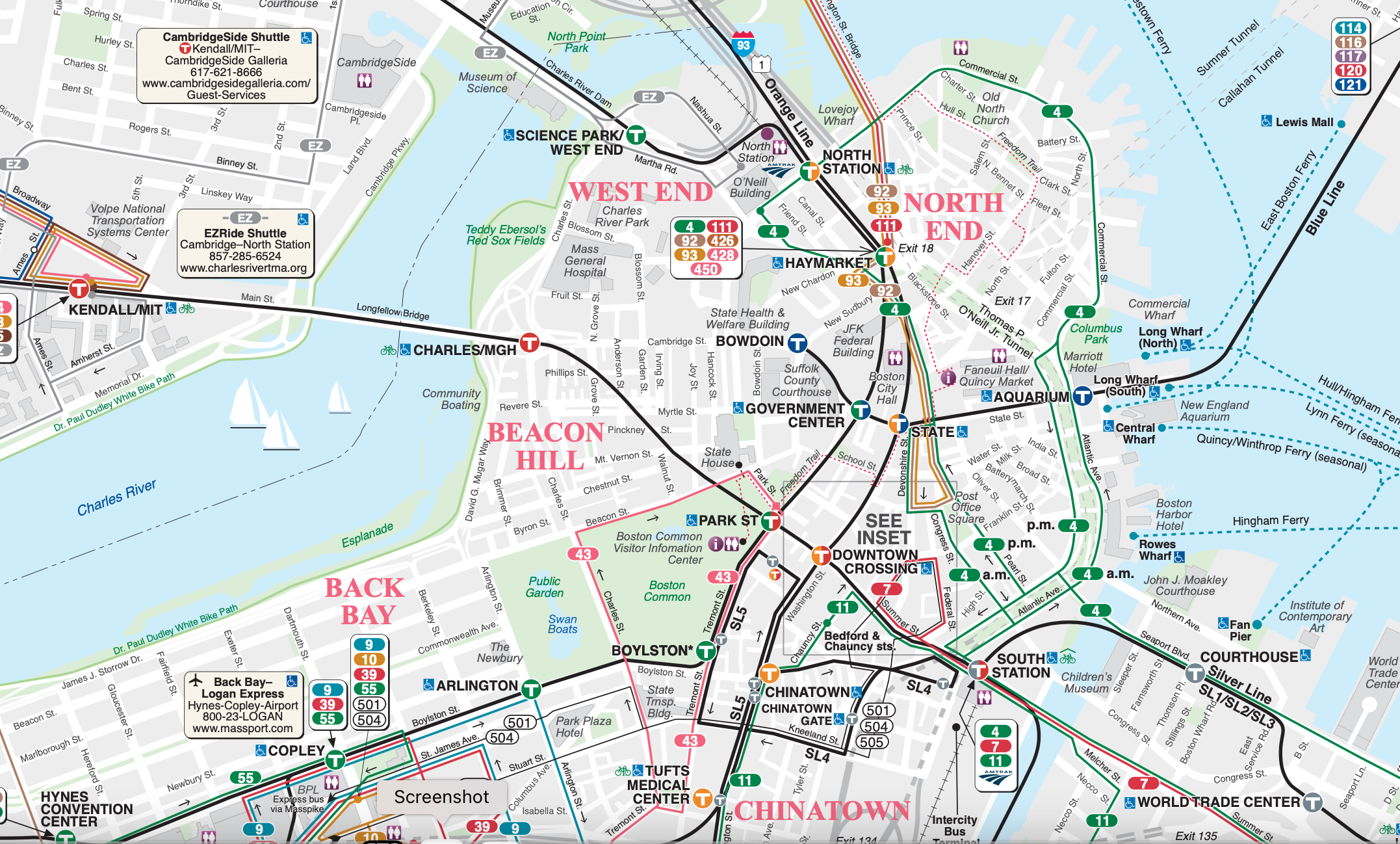
Public transit lines in downtown Boston. Click on the map for the full PDF version.
Day-Trips from Boston
It's easy to take day-trip excursions from Boston north to Salem, Gloucester and Cape Ann; west to Lexington and Concord; south to Plymouth, Quincy and Cape Cod. More...
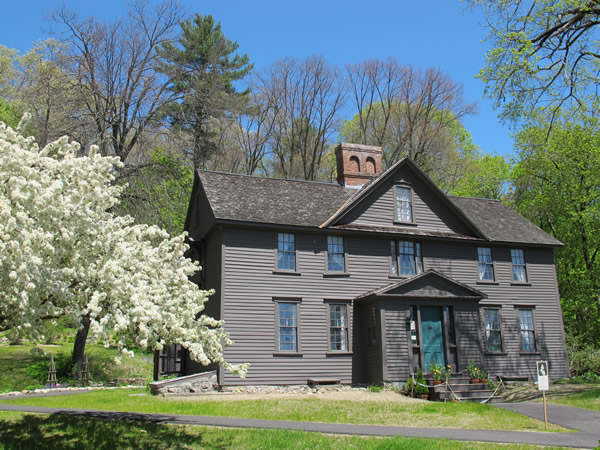
Orchard House, home of the Alcotts in Concord MA, 20 miles (32 km) west of Boston.
